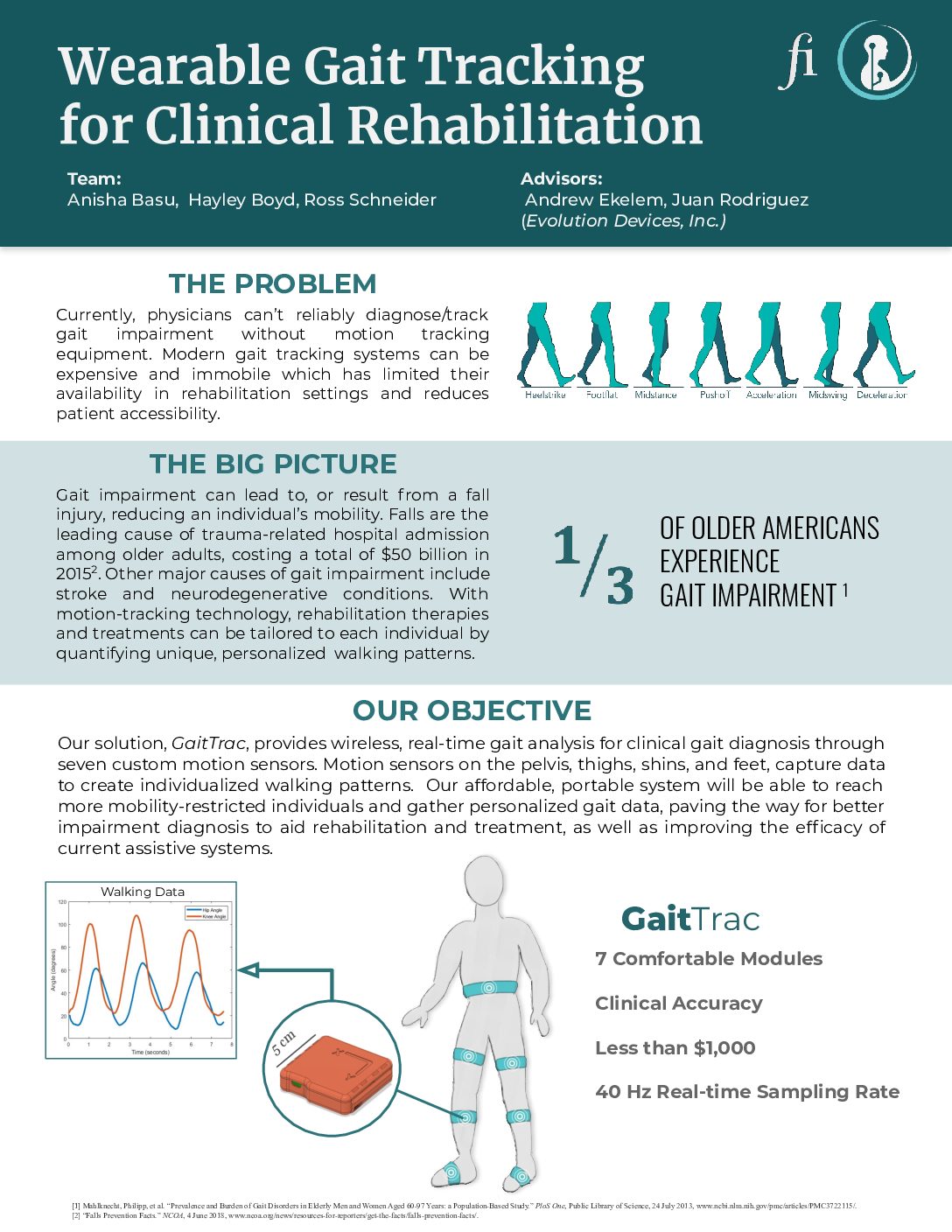GaitTrac, providing wireless, real-time gait analysis for clinical gait diagnosis through seven custom motion sensors
Team: Ross Schneider (ME), Anisha Basu (BIOE), Hayley Boyd (BIOE)
Advisors: Juan Rodriguez (Evolution Devices), Andrew Ekelem (Evolution Devices), Gabriel Gomes (ME)
A third of people over the age of 60 suffer from impaired gait, which leads to loss of personal freedom, falls, and injuries. Falls are the leading cause of fatal injury and trauma-related hospital admission among older adults, and costs around $50 billion each year. We are developing an affordable, user-friendly system that provides physician-requested gait metrics for aiding in the diagnosis of unhealthy walking patterns. Our system consists of wearable units that are comfortably strapped to the user, which along with modern software filtering techniques and real-time embedded programming solutions allows a constant stream of motion tracking data.
The Problem:
Currently, physicians can’t reliably diagnose/track gait impairment without motion tracking equipment. Modern gait tracking systems can be expensive and immobile which has limited their availability in rehabilitation settings and reduces patient accessibility.
The Big Picture:
Gait impairment can lead to, or result from a fall injury, reducing an individual’s mobility. Falls are the leading cause of trauma-related hospital admission among older adults, costing a total of $50 billion in 2015. Other major causes of gait impairment include stroke and neurodegenerative conditions. With motion-tracking technology, rehabilitation therapies and treatments can be tailored to each individual by quantifying unique, personalized walking patterns.
Our Objective:
Our solution, GaitTrac, provides wireless, real-time gait analysis for clinical gait diagnosis through seven custom motion sensors. Motion sensors on the pelvis, thighs, shins, and feet, capture data to create individualized walking patterns. Our affordable, portable system will be able to reach more mobility-restricted individuals and gather personalized gait data, paving the way for better impairment diagnosis to aid rehabilitation and treatment, as well as improving the efficacy of current assistive systems.
Project Brief

← View all Capstone Projects


